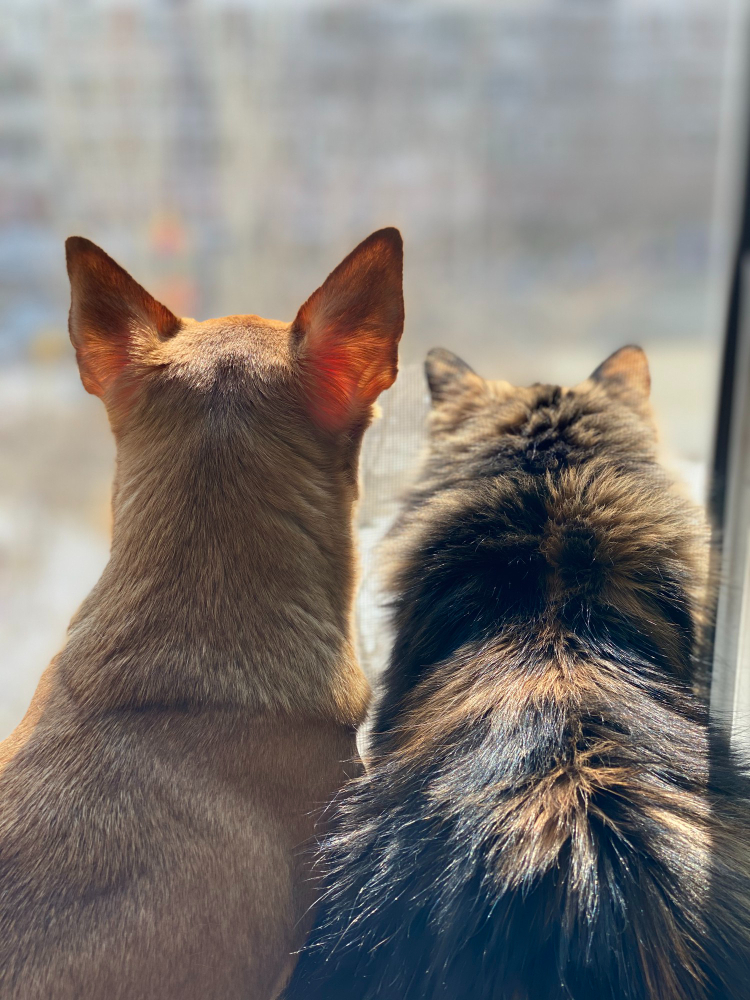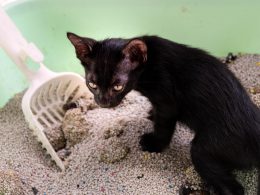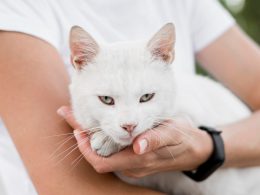Understanding the intricacies of Cat Behavior is essential for every cat owner. From excessive meowing to destructive scratching, recognizing and addressing behavior problems is crucial for maintaining a happy and healthy relationship with your furry companion. In this blog we’ll explore common cat behavior problems delve into their underlying causes, offer practical solutions and provide preventive tips to help you navigate the world of feline behavior with confidence.
What Causes Cat Behavior Problems?
Cat behavior problems can stem from a myriad of sources including environmental changes, lack of mental stimulation and underlying health issues. Cats are sensitive creatures that may exhibit behavioral changes in response to their surroundings or internal discomfort. By identifying the triggers behind your cat’s behavior problems you can take proactive steps to alleviate their distress and foster a happier healthier relationship with your pet.
-
Not Being Around Others Enough
When cats are young they need to spend time with people and other animals. If they don’t they might feel scared or act mean towards others later.
-
Getting Stressed Out
Cats don’t like sudden changes. Moving to a new home or having a new pet join the family can make them feel worried. This worry can make them hide, get angry or go to the bathroom where they’re not supposed to.
-
Health Problems
Sometimes when cats start acting differently it could mean they’re not feeling well. Things like infections or problems with their teeth can make them behave strangely.
-
Protecting Their Space
Cats like to feel like they own their territory. If they think other animals are taking over, they might start fights or show other bad behaviors.
-
Feeling Bored
Cats need things to do to keep them busy. If they don’t have enough toys or things to explore they might start meowing too much scratching things or acting out in other ways.
-
Trouble with the Litter Box
Cats like their litter box to be clean. If it’s dirty or if they’re not feeling well they might not want to use it.
-
Feeling Lonely
Some cats don’t like being alone for too long. When they’re alone, they might start making too much noise, breaking things, or going to the bathroom where they’re not supposed to.
-
Having Unresolved Fights
Cats don’t always get along with other pets or people. If they’re scared or upset they might start behaving badly.
What are Common Cats Behaviour Problems?
1. Scratching
Cats scratch furniture or carpets to keep their claws healthy and mark their territory. It’s like them saying, “Hey, this is mine!” If they’re scratching things they shouldn’t, you can give them scratching posts or toys to scratch instead.
Solution of this Problem
- Give your cat scratching posts or pads.
- Put them where your cat likes to scratch.
- Use things like double sided tape on furniture to stop scratching.
- Trim your cat’s nails.
2. Chewing
Some cats like to chew on things out of boredom or curiosity. Kittens might chew because their teeth are growing. It’s important to give them safe things to chew on, like toys, and keep dangerous objects away from them.
Solution of this Problem:
- Offer safe toys for chewing.
- Keep dangerous stuff away.
- Play with your cat to keep them busy.
3. Urine Marking
Sometimes cats might pee outside their litter box because they’re stressed or not feeling well. Keeping their litter box clean and ensuring they feel safe at home can help prevent this.
Solution of this Problem
- Have enough litter boxes.
- Keep them clean and in quiet spots.
- Fix any problems causing stress.
- Try calming products.
4. Aggression
If a cat is aggressive towards people or other pets, it might be because it’s scared or not feeling well. It’s important to understand why the cat is acting this way and to get help from a vet or someone who knows about cat behavior.
Solution of this Problem
- Find and remove things that make your cat angry.
- Make safe spaces for them.
- Train them with treats and praise.
- Ask a vet or expert for help.
Some other pets can eat cat food so it may cause cat aggression so prevent other pets like dogs from getting in cat foods
5. Obsessive Compulsive Licking
If a cat licks itself too much, it could mean it’s in pain or feeling stressed. Keeping an eye on how much the cat is licking and talking to a vet if it seems like too much can help the cat feel better.
Solution of this Problem:
- Check for health issues first.
- Give your cat lots of fun stuff to do.
- Distract them from licking too much.
- Get advice from a vet if needed.
6. Vocalization
Cats meow for different reasons like when they’re hungry or want attention. But if they’re meowing a lot more than usual, especially if they’re older it could mean they’re not feeling well and might need to see a vet.
Solution of this Problem
- Make sure your cat has food, water and a clean litter box.
- Spend time playing and cuddling.
- Keep a routine.
- If they won’t stop meowing, ask a vet why.
Read more, click here to know about How To Keep The Dog Out of Cat Food
By addressing the root causes of cat behavior problems and implementing practical solutions, you can foster a harmonious relationship with your feline companion. With patience, consistency, and love, you can address behavior issues effectively and create a nurturing environment where your cat can thrive. If you’re unsure how to manage your cat’s behavior, don’t hesitate to seek guidance from Pets With Me.
FAQs
| Is it normal for cats to be aggressive? |
|
Occasional aggression in cats can be normal but excessive or unprovoked aggression may indicate underlying issues. Consulting with a veterinarian or animal behaviorist can help identify the cause and develop a behavior modification plan. |
| Why does my cat meow excessively? |
|
Excessive meowing in cats can be due to various reasons, including hunger, loneliness, or medical issues. Ensuring your cat’s basic needs are met and providing companionship can help reduce excessive meowing. |
| How can I stop my cat from scratching furniture? |
|
Providing alternative scratching surfaces and using deterrents such as double-sided tape or citrus-scented sprays can help redirect your cat’s scratching behavior away from furniture. |














